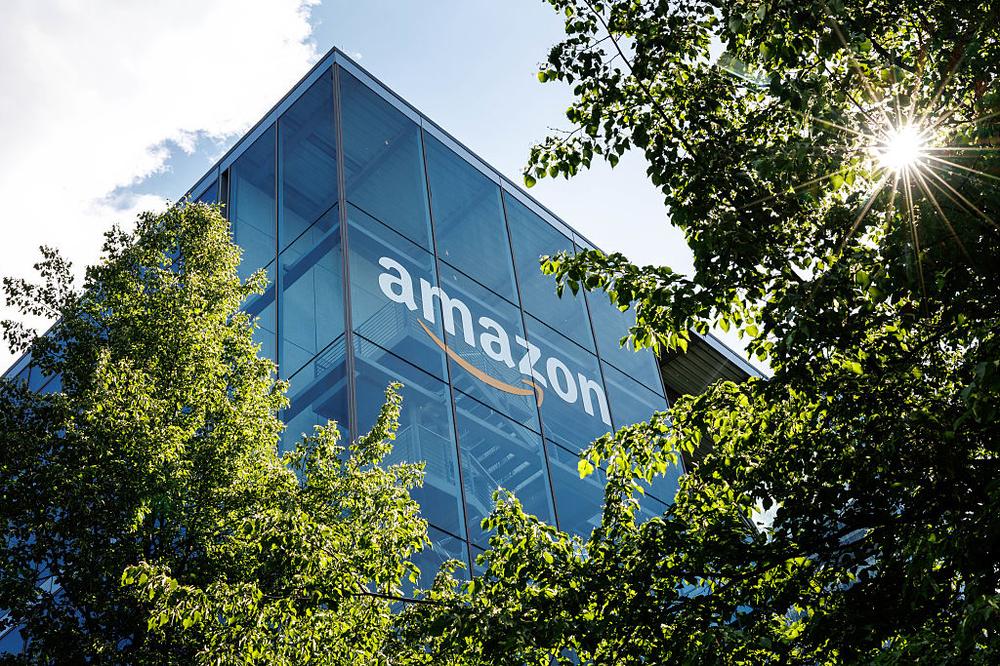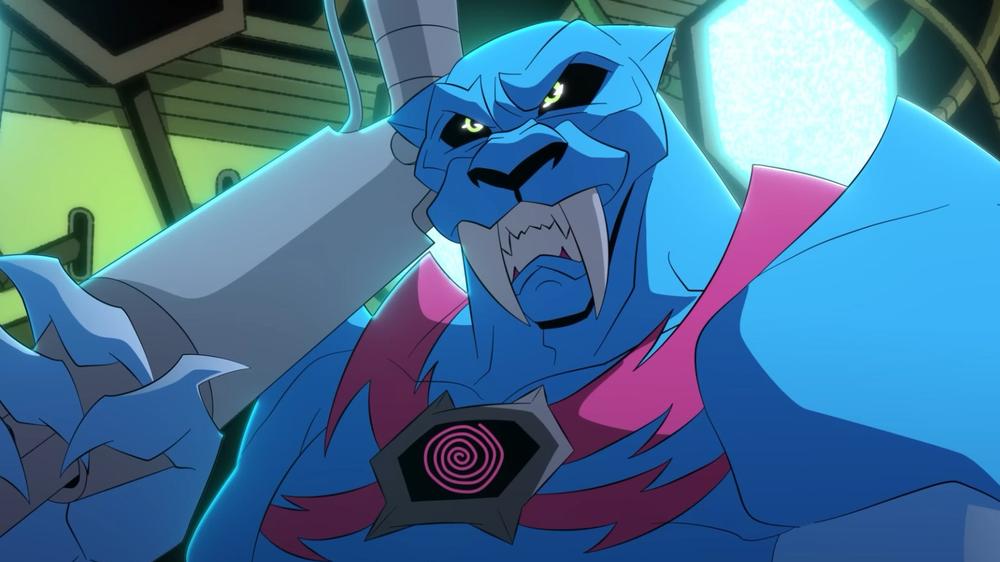AT&T committed a big no-no in its latest advertising campaign against T-Mobile, according to the organization that runs the ad industry’s self-regulatory system.
BBB National Programs’ National Advertising Division said Friday that AT&T “violated Section 2.1(I) of the National Advertising Division (NAD)/National Advertising Review Board (NARB) Procedures for the US advertising industry’s process of self-regulation by issuing a video advertisement and press release that use the NAD process and its findings for promotional purposes. NAD has demanded that AT&T immediately remove such violative promotional materials and cease all future dissemination.”
The NAD said that AT&T’s action threatens the “integrity and success of the self-regulatory forum,” and “undermines NAD’s mission to promote truth and accuracy of advertising claims and foster consumer trust in the marketplace.”
Despite its own history of misleading ad campaigns, AT&T just started airing ads with Luke Wilson that claim T-Mobile is far more dishonest than AT&T. In a press release, AT&T said it is “launching a bold new campaign to stand up for consumers by squashing T-Mobile’s untruths and setting the record straight,” and to counter “the litany of misleading and deceiving claims in T-Mobile’s marketing.”
AT&T COO Jeff McElfresh explained the ad campaign, alleging that T-Mobile has wrongly portrayed its wireless network as being larger and better than AT&T’s. But AT&T was accused of violating an NAD rule against using NAD decisions for advertising purposes.
“The Better Business Bureau’s advertising watchdog asked T-Mobile to correct their marketing claims 16 times over the last four years. That’s more than each of the entire consumer electronics and financial services industries,” AT&T’s press release said. AT&T said that “trust is earned through action,” with McElfresh saying that “we’re not just building a network—we’re building trust.”
NAD: Our rulings can’t be used in ads
Violating a National Advertising Division rule isn’t the same as violating a US law. But advertisers rely extensively on the self-regulatory system to handle disputes and determine whether specific ads are misleading and should be pulled.
Companies generally abide by the self-regulatory body’s rulings. While they try to massage the truth in ways that favor their own brands, they want to have some credibility left over to bring complaints against misleading ads launched by their competitors. The self-regulatory system also may help minimize government regulation of false and misleading claims, although the NAD does sometimes refer particularly egregious cases to the Federal Trade Commission.
While the NAD routinely issues decisions that a particular ad is misleading and should be changed or removed, the public rebuke of AT&T was unusual. AT&T’s action, it said, threatens the integrity of the entire self-regulatory system.
NAD procedures state that companies participating in the system agree “not to mischaracterize any decision, abstract, or press release issued or use and/or disseminate such decision, abstract or press release for advertising and/or promotional purposes.”
The NAD said:
In direct violation of this, AT&T has run an ad and issued a press release making representations regarding the alleged results of a competitor’s participation in BBB National Program’s advertising industry self-regulatory process.
The integrity and success of the self-regulatory forum hinges on the voluntary agreement of participants in an NAD proceeding to abide by the rules set forth in the BBB National Programs’ Procedures. As a voluntary process, fair dealing on the part of the parties is essential and requires adherence to both the letter and the spirit of the process.
AT&T’s violation of its agreement under the Procedures and its misuse of NAD’s decisions for promotional purposes undermines NAD’s mission to promote truth and accuracy of advertising claims and foster consumer trust in the marketplace.
AT&T omits its own history of misleading ads
The NAD did not say how it will move forward if AT&T refuses to pull the ads. We contacted the NAD and will update this article if it provides a response.
Of course, AT&T is correct that T-Mobile has a history of making misleading claims. Most notoriously perhaps, T-Mobile promised users who bought certain mobile plans that it would never raise their prices for as long as they lived—and then raised their prices last year. Thousands of angry T-Mobile customers complained. In a less serious but more recent incident, the ad review board found in August 2025 that T-Mobile made misleading claims about savings.
But AT&T has a similar history of misleading ads despite portraying itself as a paragon of honesty compared to its rival. “AT&T’s been carrying America’s calls since 1876,” Luke Wilson says in the new AT&T ad. “When you’ve been around that long, you can spot a hustle coming from a mile away. T-Mobile is the master of breaking promises. While T-Mobile stays caught up in untruths, AT&T keeps building what matters—America’s most reliable network.”
It would be nice if American mobile consumers could trust that the words AT&T pays Luke Wilson to say don’t omit important details. Alas, the script written for Wilson didn’t mention that AT&T used to advertise 4G LTE service as “5GE,” or that the NAD and NARB agreed with T-Mobile’s complaint that AT&T’s 5GE ads would mislead consumers into believing that a 4G service was actually 5G.
Wilson also didn’t talk about how in August 2024, AT&T was rebuked for an ad that falsely claimed the carrier was already offering cellular coverage from space. T-Mobile, which was nearing the launch of a satellite service offered via Starlink, filed a successful challenge against the AT&T ad. Now more than a year later, AT&T still hasn’t rolled out the satellite service it plans to offer with AST SpaceMobile.
“AT&T Guarantee” claims were ruled misleading
Misleading promises of “unlimited data” have occasionally gotten all the major US carriers in trouble. In 2019, AT&T agreed to pay $60 million back to customers to settle a Federal Trade Commission lawsuit over severe throttling of mobile data plans advertised as “unlimited.” In 2024, the three major carriers—T-Mobile, Verizon, and AT&T—agreed to a settlement with US states that alleged the carriers falsely advertised wireless plans as “unlimited” and phones as “free.”
AT&T was rebuked for misleading ads again just weeks before its Luke Wilson ad. Last month, the NAD recommended that AT&T modify or discontinue claims related to an “AT&T Guarantee” that didn’t have clear disclosures about the amount of time it takes AT&T to fix network outages and how long an outage must last before the guarantee takes effect.
The NAD also faulted AT&T for an unsupported claim that it was the “first and only carrier” to offer a guarantee for wireless and fiber networks. AT&T introduced the guarantee after a botched update that kicked every device off its wireless network and blocked over 92 million phone calls. The AT&T Guarantee provides bill credits when wireless outages last at least 60 minutes and impact at least 10 towers, and credits for certain fiber outages lasting at least 20 minutes.
AT&T’s press release touted this guarantee, albeit with a footnote describing the limitations. “This isn’t a meaningless price-lock, this is showing up for customers with the truth, the proof, and the receipts to show,” AT&T said.
Despite the NAD demanding that AT&T remove ads violating the program rules, the press release and Luke Wilson ad are still online. We contacted AT&T and T-Mobile today and will update this story if either carrier provides a response.

 Amazon reportedly plans to cut around 30,000 corporate jobs
Amazon reportedly plans to cut around 30,000 corporate jobs